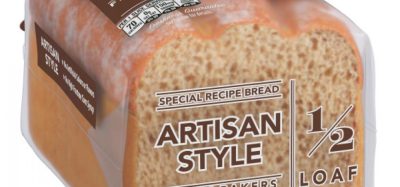Is the reduced lack of trust in our food something to really worry about?
- Like
- Digg
- Del
- Tumblr
- VKontakte
- Buffer
- Love This
- Odnoklassniki
- Meneame
- Blogger
- Amazon
- Yahoo Mail
- Gmail
- AOL
- Newsvine
- HackerNews
- Evernote
- MySpace
- Mail.ru
- Viadeo
- Line
- Comments
- Yummly
- SMS
- Viber
- Telegram
- Subscribe
- Skype
- Facebook Messenger
- Kakao
- LiveJournal
- Yammer
- Edgar
- Fintel
- Mix
- Instapaper
- Copy Link
Posted: 8 August 2022 | Chris Elliott | No comments yet
Professor Chris Elliott offers his two-cents on the recent news that trust in food among UK consumers is falling and whether this is media-fuelled nonsense or a cause for real concern.


For many, this issue is taking front and centre position and although it is concerning, it does not worry me as much as the lack of inspections and checks on imported foods. To me, this is a much larger issue.
Indeed, the UK’s plans to rush through a trade deal with India which is likely to see higher levels of pesticide and natural toxins present in our food is deeply concerning. Several organisations have warned about the consequences of such deals which are much more about gaining political kudos than serving or protecting consumers. Of course, these types of warnings are falling on deaf ears, as are so many pressing social issues.
A report recently published by Red Tractor stated that UK consumer trust in Irish food is now higher than that of British produce. Hardly an indication that Brexit is working…So alarm bells are ringing – at least in some quarters – and in the face of adversity there are always opportunities and Red Tractor appears to be attempting to seize some of them. Its Chair, Christine Tacon, has talked about how the organisation can lead on rebuilding trust in UK food. The Red Tractor logo is one of the most prominent quality assurance brands we see in our supermarkets and there is plenty of evidence that it is well recognised by consumers to back this up. However, the organisation has also seen challenge from its members and other food and farming bodies, as some argue it’s no longer fit for purpose and instead is a bureaucratic and economic burden on the already hard-pressed farmers.
Several years ago, at a National Farmers Union conference, I challenged Red Tractor to make some radical changes in terms of the adoption of new technologies and practices so they would remain an integral and valued part of the UK food system. Perhaps under the leadership of Tacon this might happen? However, after reading a recent article that stated it was introducing its own environmental eco-labelling scheme, I’m left wondering why it has decided to reinvent the wheel; there already many such schemes under development and, in my opinion, its proposal doesn’t appear to be in the same league…
My own view is that there are major disruptors entering the farm quality assurance landscape who will be slicker, give better value for money and more IT savvy. I can already see evidence of this starting to happen. Ultimately, trust is about knowing where your food comes from, how it is produced, and that it meets all the national and voluntary standards claimed on the label; the more transparency around all these factors, the better. This is why the digitisation of supply chains is important and why so many companies are now either using blockchain-type systems or exploring their potential.
I wouldn’t be surprised if the reading on the trust barometer falls further as the economic meltdown we are experiencing worsens. At the same time, when (and hopefully the sooner the better) we start to see daylight again, more digital tools that provide the levels of transparency needed will have been implemented. However, I do not see any great prospects of turning the tide against ill-thought through trade deals which will only serve to undermine public confidence in the food we buy and help further decimate the precious UK farming industry.
Related topics
Food Safety, Packaging & Labelling, Pesticides, The consumer, Traceability, Trade & Economy









